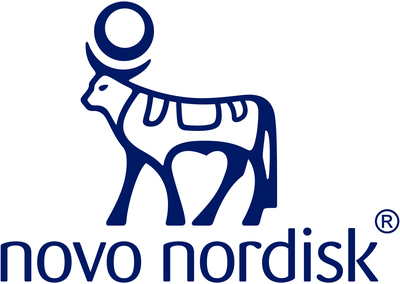Novo Nordisk's CagriSema was associated with significant reduction in blood pressure and showed anti-inflammatory effects while reducing the proportion of patients at risk of developing heart disease over time in new analyses at ObesityWeek®
Novo Nordisk's CagriSema was associated with significant reduction in blood pressure and showed anti-inflammatory effects while reducing the proportion of patients at risk of developing heart disease over time in new analyses at ObesityWeek® |
| [06-November-2025] |
PLAINSBORO, N.J. and BAGSVÆRD, Denmark, Nov. 6, 2025 /PRNewswire/ -- At ObesityWeek® (November 4-7 in Atlanta, GA), Novo Nordisk presented new post hoc analyses from the phase 3 REDEFINE 1 trial evaluating CagriSema, an investigational injectable combination treatment for adults with overweight or obesity, and its effects on well-known cardiovascular (CV) risk factors, including hypertension and systemic inflammation.1-3 The results from the post hoc analysis of REDEFINE 1, exploring the CV risk reduction potential of investigational CagriSema, were also simultaneously published in Hypertension.1 With CagriSema treatment, systolic blood pressure was reduced by -10.9 mmHg over 68 weeks (versus -8.8 mmHg with semaglutide 2.4 mg and -2.1 mmHg with placebo).* This reduction was seen regardless of BMI (less than versus greater than or equal to 35 kg/m2). In the CagriSema group, nearly 4 out of 10 people who had been on blood pressure-lowering medication were able to cut down or stop this medication during the trial.1 Exploratory post hoc analyses are hypothesis generating, and further work investigating the clinical validity of these results would be of value. "We're very excited by the results of these analyses of CagriSema, which show promising results of combining cagrilintide with the proven significant effects of semaglutide on CV health," said Martin Holst Lange, chief scientific officer and executive vice president of Research & Development at Novo Nordisk. "People living with obesity have treatment goals that often include both losing weight and improving overall health. That's why we continue to explore new therapies that we hope will deliver on weight loss needs while reducing the risk of obesity-related health issues like cardiovascular disease." CagriSema was also associated with a reduction in a key marker of body-wide inflammation – high-sensitivity C-reactive protein (hsCRP) – at week 68, regardless of baseline hsCRP levels. The reduction with CagriSema (–68.9%) was greater than with semaglutide 2.4 mg alone (–55.4%) or placebo (–16.0%).*2 In a mediation analysis, the hsCRP reduction with CagriSema was only partially explained by weight loss, suggesting that the inflammatory effects of CagriSema are not fully weight loss dependent. "The CagriSema data presented at ObesityWeek® are very encouraging regarding the effects on well-known CV risk factors like high blood pressure – a strong signal that warrants further investigation. High blood pressure has a significant impact on the heart, increasing the risk of heart attacks and strokes and, alongside inflammation, is a key driver of cardiovascular disease," said Professor Subodh Verma, Cardiac Surgeon and Canada Research Chair Division of Cardiac Surgery, Li Ka Shing Knowledge Institute of St. Michael's Hospital, University of Toronto, Canada. "If we can lower inflammation, bring blood pressure to more normal levels, and help people lose weight at the same time, there's potential for holistic improvement in overall health." High blood pressure and chronic inflammation are critical in the development of atherosclerotic cardiovascular disease (ASCVD). CagriSema reduced the proportion of people who were at intermediate-to-high risk of developing ASCVD within the next 10 years.*3 A dedicated trial (REDEFINE 3) is ongoing to investigate the effect of CagriSema on CV outcomes in patients with established cardiovascular disease, with or without type 2 diabetes. Safety data generated in the REDEFINE 1 trial were comparable with the GLP-1 RA class. Overall, discontinuation rates due to adverse events were low, with 6% for CagriSema versus 3.7% for placebo. In REDEFINE 1, adverse events were mainly gastrointestinal (79.6% in the CagriSema group versus 39.9% with placebo), including nausea (55% versus 12.6%), constipation (30.7% versus 11.6%), and vomiting (26.1% versus 4.1%), and were mostly transient and mild-to-moderate in severity.4 * Based on the trial product estimand; estimated treatment effect if all participants adhered to treatment. About CagriSema CagriSema is not approved in the US or EU. About the REDEFINE 1 trial About obesity About Novo Nordisk Contacts for further information
_______________________ References
© 2025 Novo Nordisk All rights reserved. US25SEMO03075 October 2025
SOURCE NOVO NORDISK INC. | ||||||||||||||
Company Codes: NYSE:NVO |




















